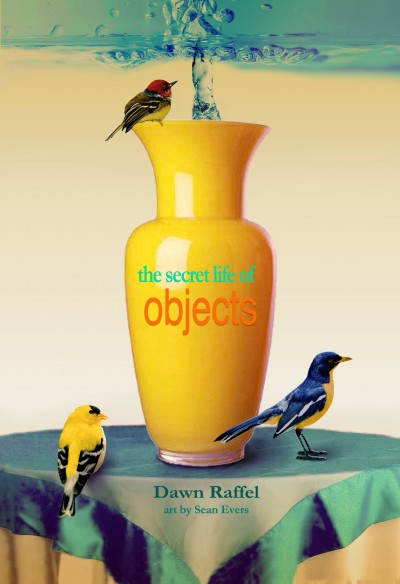A Conversation With Dawn Raffel
You wrote that you were surprised to find your father’s Jewish prayer book after he died; did this discovery revise your understanding of who he was?
My father claimed to have no interest in organized religion and would cheerfully describe himself as a born-again atheist. And yet he was a spiritual person and an ethical one. He’d have given you the shirt off his back if you needed it. I think the prayer book drove home how deeply Jewish he was, no matter what he said. It was simply part of his being and he understood that.
What about your mother’s bible?
That didn’t surprise me—she was open about never leaving on a trip without it. She was very proud of her identity as a Jewish woman, while at the same time offended by rituals she considered sexist. She was so happy to see the emergence of women rabbis. One year she was in the hospital during her own mother’s yahrzeit, and one of the Reform women rabbis from her synagogue came to say the mourner’s kaddish with just my mother and me. There wasn’t a minyan, and to us it didn’t matter; it gave my mother tremendous comfort.
 Many of these pieces are prompted by loss, either through death or other kinds of absence; do you feel that the objects you describe are an attempt to resist or compensate for those losses?
Many of these pieces are prompted by loss, either through death or other kinds of absence; do you feel that the objects you describe are an attempt to resist or compensate for those losses?
Nothing compensates for those losses. But I do feel the objects hold some sort of residue of the lives they’ve touched. I dedicated the book to my children because I wanted them to have a record—a catalogue, if you will—of who their grandparents and great-grandparents were, and who their mother was too!
You wrote that your family did “deny” being Jewish, but not “advertise” it either; how has this unspoken rule shaped your own feelings about religion and faith?
Wow, that’s a hard question. My parents were dealing with the fact that it was socially acceptable for people to be openly anti-Semitic in the 50s and 60s in the Midwest. And their whole generation was so deeply imprinted by the Holocaust; I don’t think we can underestimate the psychological, emotional, and spiritual trauma they endured, even as Americans, and the many ways that played out. As for me, as a young woman—because my name doesn’t telegraph that I’m Jewish— I was sometimes slow to volunteer that information. Coming to New York, it was a lot easier to be Jewish, but I also went through my own period of being an atheist and not wanting anything to define me. When I finally “came back,” it was to a progressive Conservative synagogue. I think my comfort with it can be attributed to finding a congregation where I feel I can grow, and to being at an age where I have a better understanding of who I am, and to being in a place where I don’t have to hide or face consequence. I am fortunate to live in such a good time and place to be a Jewish woman.



